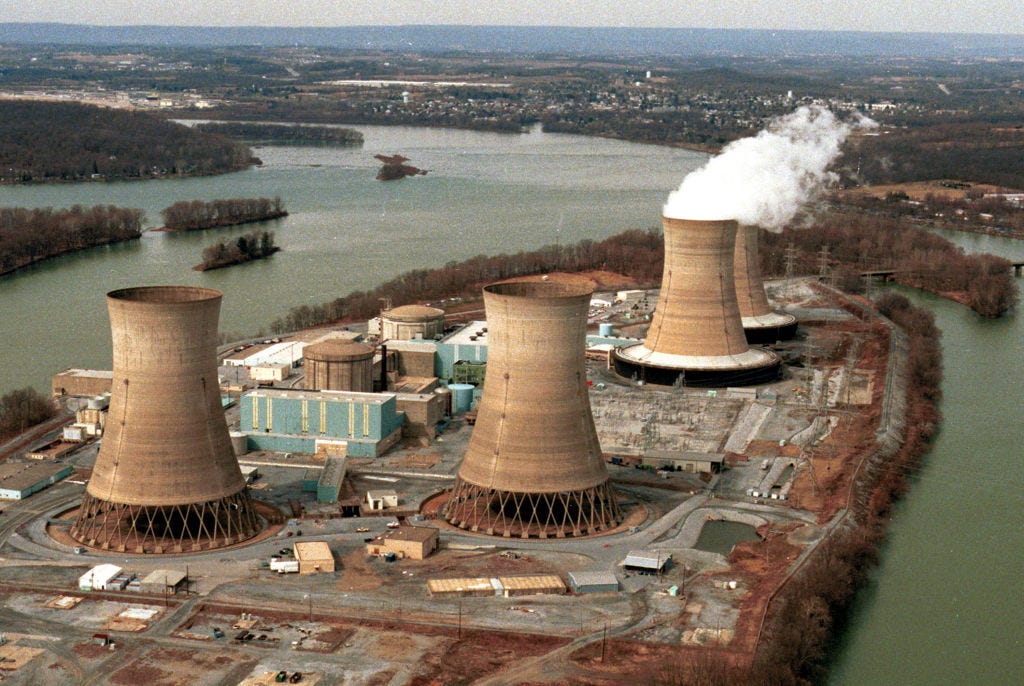The island where three apocalypses meet
A.I. and climate change, today's existential threats, reach back in time to resurrect a companion from yesteryear
You may have read recently about Microsoft cutting a deal to reopen Three Mile Island to power its A.I. development efforts. And if you’re old enough to remember March 28, 1979, you probably read that with a bit of a shudder.
While the news on the day of the meltdown was indeed extremely frightening, luckily the aftermath — at least considered in physica…




